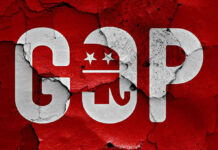
Consumer confidence plummeted to its lowest level since April 2025, as Americans grew increasingly worried about job availability.
The labor market differential hit a multi-year low amid President Trump’s early policy adjustments.
Story Highlights
- Consumer confidence index dropped to 94.2 in September, missing economists’ forecasts by nearly 2 points.
- Job availability assessment declined for the ninth consecutive month, signaling persistent labor market weakness.
- The Future Expectations Index has remained below the recession warning threshold of 80 since February 2025.
- The labor market differential hits a multi-year low of 7.8, indicating widespread concerns about job scarcity.
Sharp Decline Reflects Labor Market Fears
The Conference Board’s consumer confidence index fell to 94.2 in September 2025, down from a revised 97.8 the previous month. This represents the lowest reading since April 2025 and significantly missed the Wall Street Journal economists’ forecast of 96.0.
The decline underscores growing anxiety among American workers about employment opportunities, a concern that has persisted despite Trump’s return to office and promises of economic revitalization.
Present Conditions Drop While Future Outlook Remains Grim
Consumer assessment of current economic conditions plunged 7 points to 125.4, marking the largest single-month drop in a year. More troubling for economic forecasters, the future expectations gauge fell 1.3 points to 73.4.
This forward-looking measure has remained below the critical 80 threshold since February 2025, a level economists traditionally view as a recession warning signal. The persistent weakness suggests Americans remain skeptical about near-term economic prospects.
Labor Market Differential Hits Critical Low
The labor market differential, which measures the gap between consumers who view jobs as plentiful versus those who consider them hard to find, contracted to just 7.8 in September.
This multiyear low represents the ninth consecutive monthly decline, indicating widespread concern about job availability across the country.
The sustained deterioration in job market perceptions poses challenges for Trump’s administration as it works to restore confidence in American economic strength and opportunity.
Economic Headwinds Challenge Recovery Efforts
Several factors contribute to the pessimistic consumer outlook, according to NerdWallet senior economist Elizabeth Renter. High interest rates continue to constrain economic activity, while ongoing tariff discussions create uncertainty for businesses and workers.
The difficulty of upgrading employment positions reflects a stagnant job market where Americans feel trapped in current roles.
Renter noted that “there seems to be a new impactful development in economic policy each week,” highlighting the challenge facing the Trump administration as it implements comprehensive economic reforms while maintaining consumer confidence.















